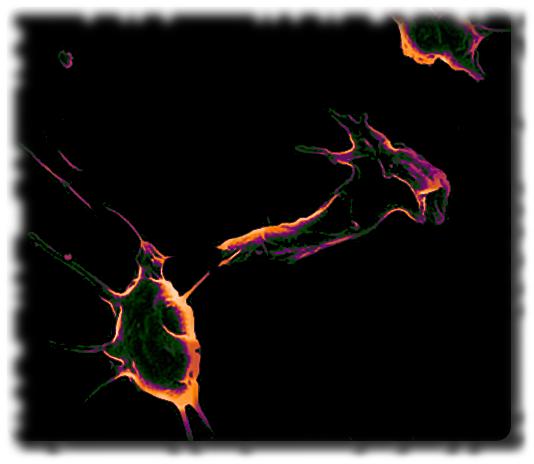Welcome to the Biomolecular Interactions Lab
 The Biomolecular Interactions Lab is located in 510/512 Rhodes Research Center and is designed for experimental work with a wet lab space of 800 sq. ft. fully equipped with work benches, sinks, refrigerator/freezer, and fume-hoods. One of the primary focus areas of this lab is for the quantitative determination of molecular-level aspects related to the orientation, conformation, and bioactivity of adsorbed proteins to surfaces and their influence on the blood compatibility of biomaterials that are used in cardiovascular and vascular applications. Most recently, we have expanded our efforts by beginning a translational research program focused on the development of low-cost, noninvasive colorimetric biosensors for at-home monitoring of physiologic status for specific disease conditions. Currently, we are working on the development of a urine test as an at-home monitoring method for blood phenylalanine as well as a test for measuring the ammonia concentration in exhaled breath for at-home monitoring for patients suffering from chronic kidney disease or individuals with a urea cycle disorder. The key facilities of this lab are a Biacore surface plasmon resonance (SPR) spectroscopy instrument for adsorption kinetics and thermodynamics studies, a Reichert AR700 temperature controlled automatic refractometer, a JASCO J-810 circular dichroism spectropolarimeter with Peltier temperature control for molecular structure analysis, a variable angle spectroscopic ellipsometer (GES5, SOPRA Inc.) for surface layer characterization, a computerized contact angle instrument and image analysis system (Krüss DSA-20E) for surface characterization, a spin coater (MTI corporation) for the fabrication of nanometer-thick polymeric films, a glove box for working under low-humidity or inert-gas environments, and a vacuum oven and incubator for sample thermal processing.
The Biomolecular Interactions Lab is located in 510/512 Rhodes Research Center and is designed for experimental work with a wet lab space of 800 sq. ft. fully equipped with work benches, sinks, refrigerator/freezer, and fume-hoods. One of the primary focus areas of this lab is for the quantitative determination of molecular-level aspects related to the orientation, conformation, and bioactivity of adsorbed proteins to surfaces and their influence on the blood compatibility of biomaterials that are used in cardiovascular and vascular applications. Most recently, we have expanded our efforts by beginning a translational research program focused on the development of low-cost, noninvasive colorimetric biosensors for at-home monitoring of physiologic status for specific disease conditions. Currently, we are working on the development of a urine test as an at-home monitoring method for blood phenylalanine as well as a test for measuring the ammonia concentration in exhaled breath for at-home monitoring for patients suffering from chronic kidney disease or individuals with a urea cycle disorder. The key facilities of this lab are a Biacore surface plasmon resonance (SPR) spectroscopy instrument for adsorption kinetics and thermodynamics studies, a Reichert AR700 temperature controlled automatic refractometer, a JASCO J-810 circular dichroism spectropolarimeter with Peltier temperature control for molecular structure analysis, a variable angle spectroscopic ellipsometer (GES5, SOPRA Inc.) for surface layer characterization, a computerized contact angle instrument and image analysis system (Krüss DSA-20E) for surface characterization, a spin coater (MTI corporation) for the fabrication of nanometer-thick polymeric films, a glove box for working under low-humidity or inert-gas environments, and a vacuum oven and incubator for sample thermal processing.
